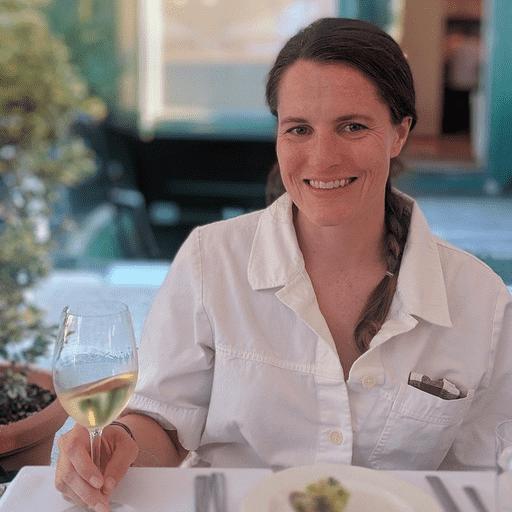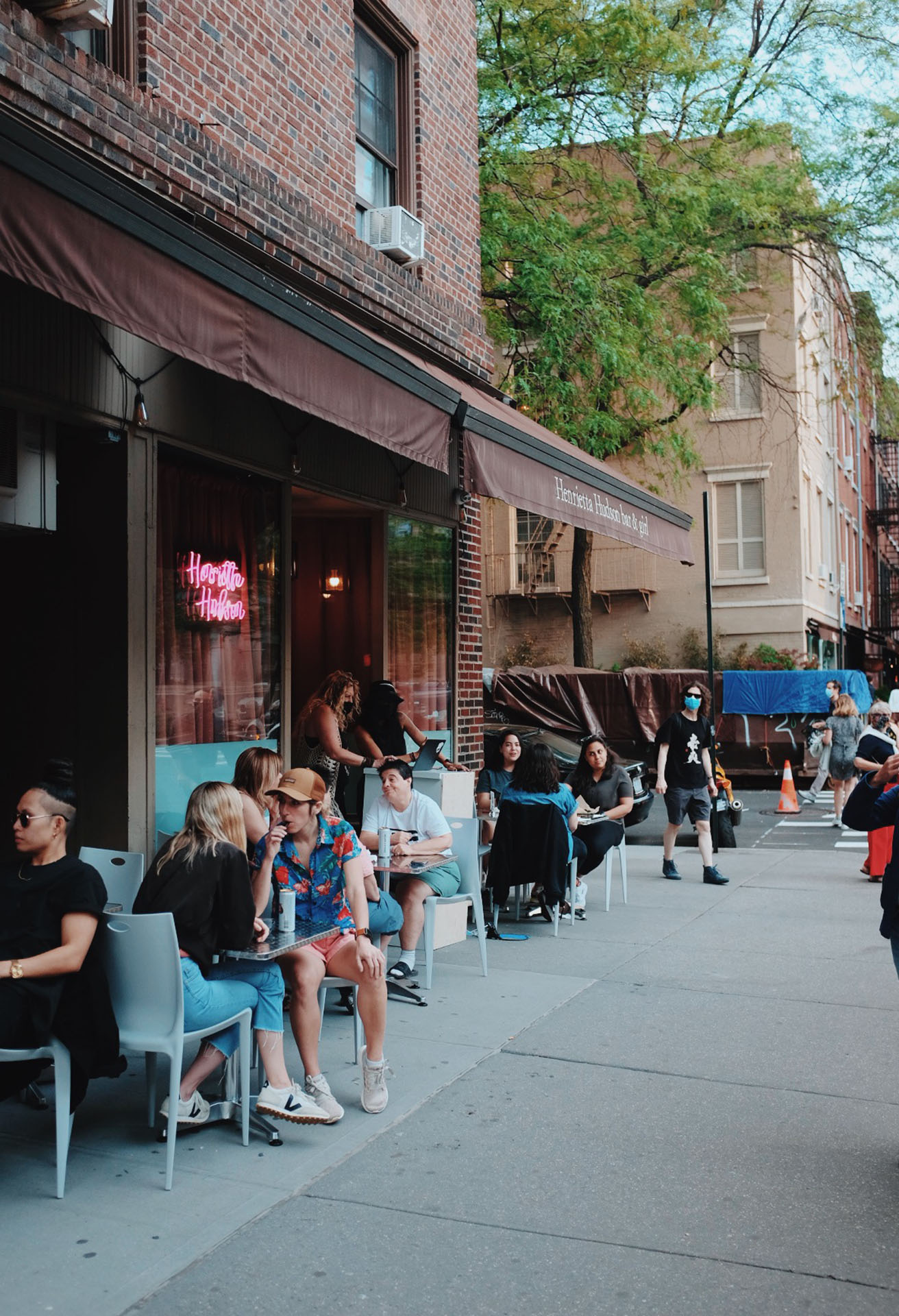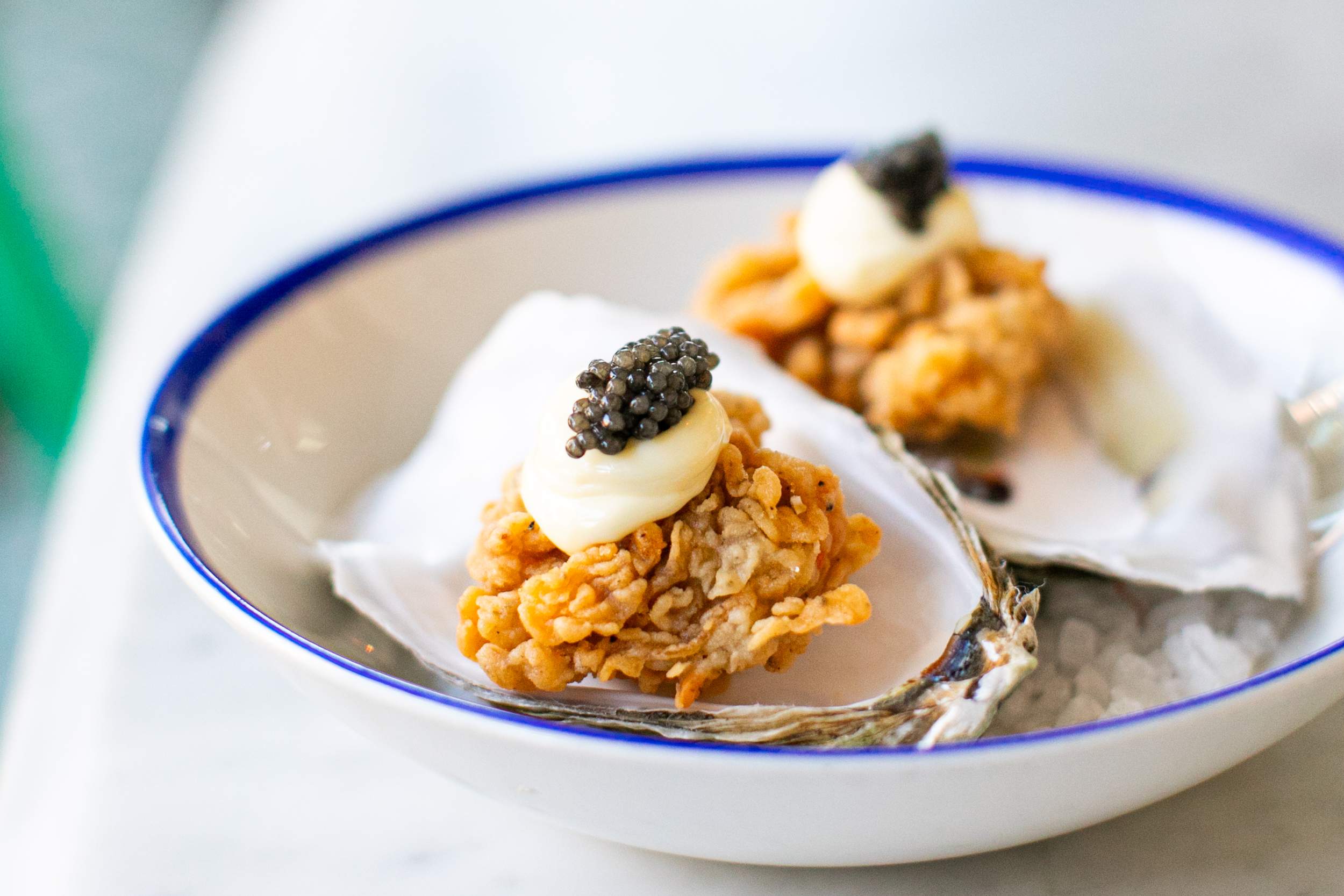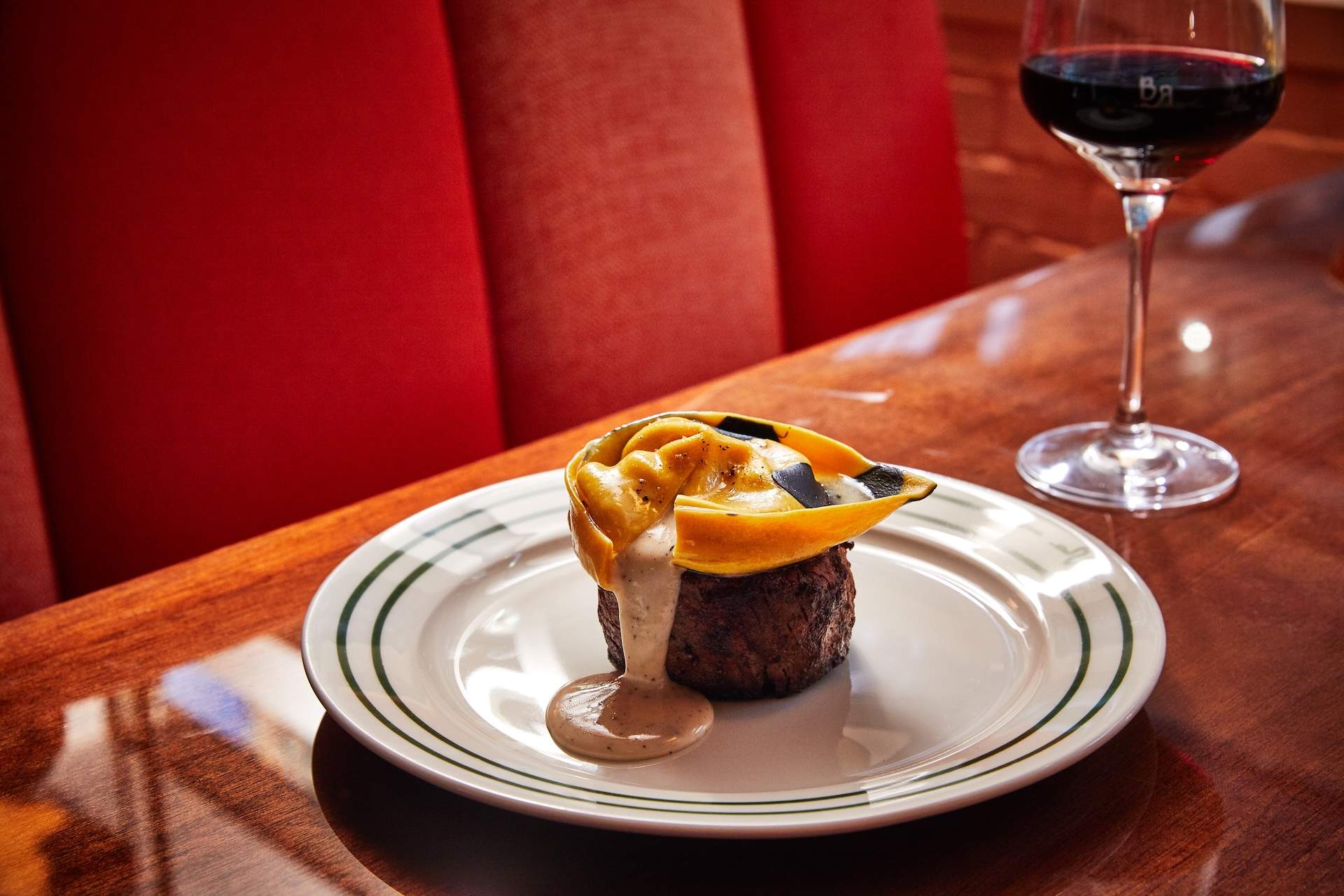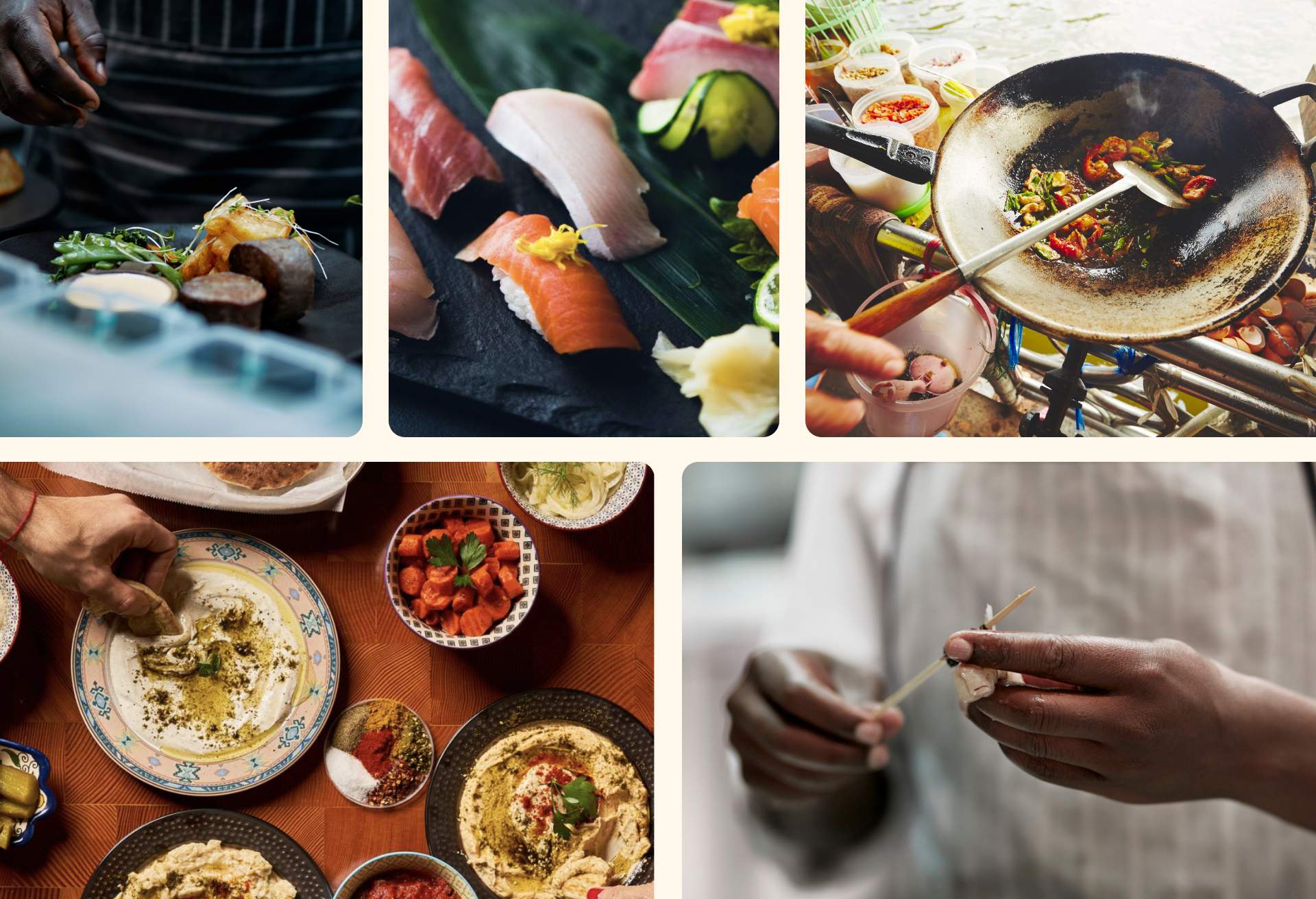In the era of Pride when rainbows adorn city streets and shop windows for major retailers, it’s easy to forget that today’s visibility is possible in part thanks to the LGBTQ spaces that bravely served as sanctuaries for queer people when being out publicly was unheard of, unsafe, and in some cases, even illegal. For generations of LGBTQ people, bars and restaurants have served as community pillars, as places to organize, gather, mourn, and celebrate.
Even before the pandemic, queer bars and restaurants were disappearing — and the fallout from COVID-19 has sped up that trend, prompting the creation of campaigns such as The Lesbian Bar Project to advocate for their preservation. But there is one silver lining, says Lisa Cannistraci, the owner of Henrietta Hudson, the longest-running lesbian bar in the country: “Queer spaces have become more inclusive — the community is uniting now more than ever.”
This year, as more people feel comfortable gathering and celebrations start to return to pre-pandemic levels of fun, there’s no better way to celebrate Pride than to pay a visit to one of these community stalwarts across the country, where you can reflect on the past while toasting to a more inclusive future.
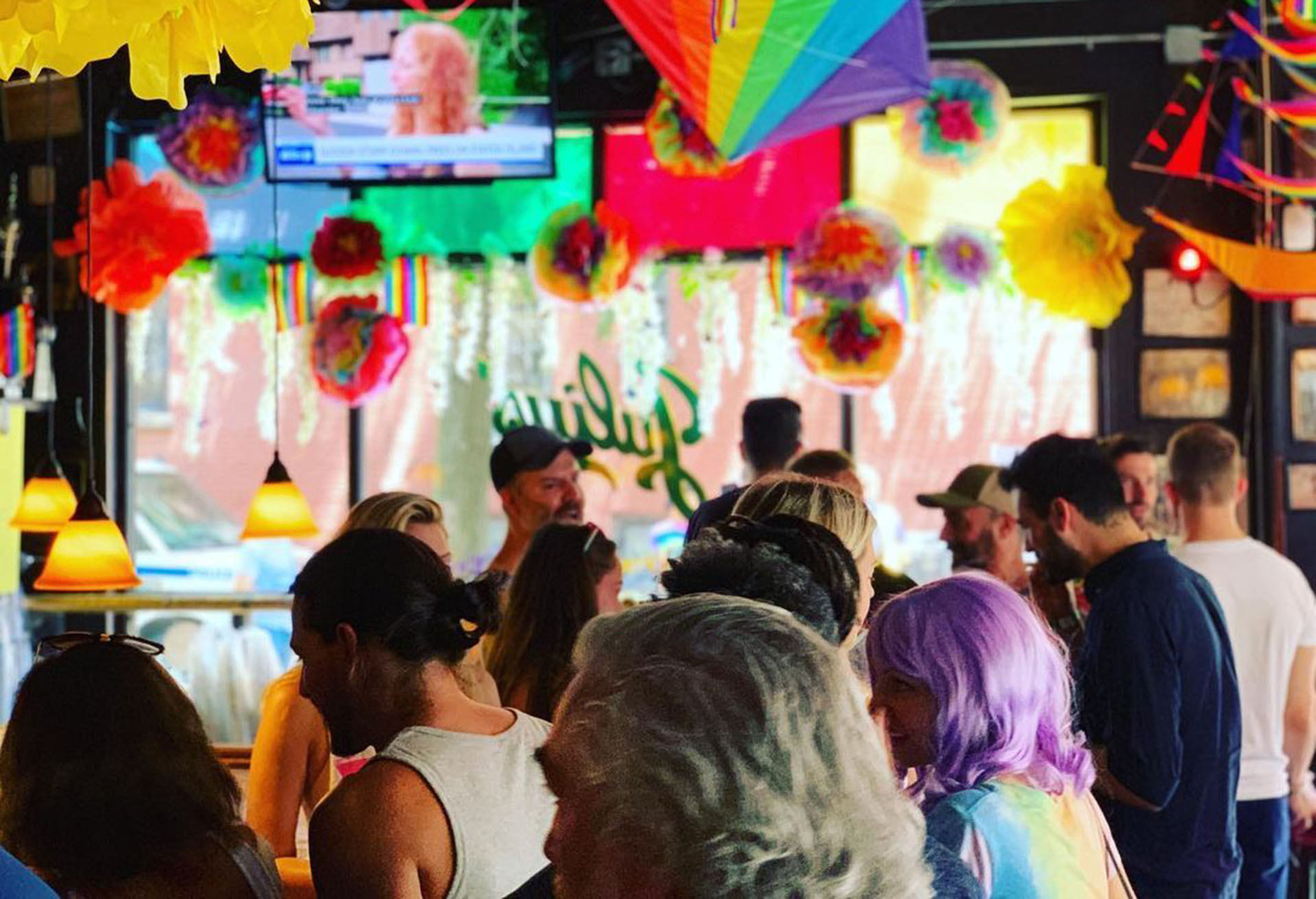
Julius’ Bar (New York City)
While many people have heard of Stonewall—the bar where a 1969 police raid sparked a multi-day uprising that birthed the modern LGBTQ rights movement—an exploration of New York’s LGBTQ history isn’t complete without a trip to Julius’. The West Village space has been operating continuously as a bar since 1864, serving as a speakeasy throughout Prohibition and eventually attracting gay clientele starting in the 1950s. But Julius’ is best known as the site of a “sip-in” on April 21, 1966—a public protest against a state law that prohibited alcohol service to LGBTQ people in bars and restaurants. This act of civil disobedience helped clear the way for gay bars to legally operate, and ensures that today anyone can drink feely at Julius’ while chowing down on one of the bar’s famed burgers.
Henrietta Hudson (New York City)
Since opening its doors in 1991, Henrietta Hudson has always had the distinction of being one of the few spaces owned and operated by lesbians. But over the course of the past few decades, owner Lisa Cannistraci has watched the West Village change from a gay, bohemian enclave to one of the city’s most coveted zip codes. And Henrietta’s (or Hen’s, as regulars call it) has evolved, too—giving the interior and menu a face lift in 2021 while adding a breezy outdoor dining area where diners can sip women-made wines and snack on charcuterie.
Harvey’s (San Francisco)
The windows at Harvey’s not only offer some of the best people watching in the Castro—they also represent a subtle but important shift in LGBTQ history. The restaurant sits in the space formerly occupied by The Elephant Walk, a bar that made a radical choice when it opened in 1974 by keeping its street-facing windows. Before that time, it was common practice to board up windows to protect the privacy of patrons and avoid police raids. Today, Harvey’s (named for the first out elected official in California, Harvey Milk) is the best place to fuel up for Pride at a boisterous brunch while sipping on some of the city’s best bloody marys. 993145
Numbers Cabaret (Vancouver, CA)
When Vancouver’s oldest gay bar closed its doors after a change of ownership in May 2020, many feared it might become a pandemic casualty like so many other LGBTQ bars and restaurants. But the brief closure was just a blip on the radar for Numbers, which has been operating as a gay bar since 1980 in a building that had previously housed everything from a brothel to a disco. When the cabaret reopened in the summer of 2021, Vancouverites were wowed by the newly renovated interiors, including the show lounge and karaoke bar, along with the new patio space where diners can grab bites from a roster of food trucks.
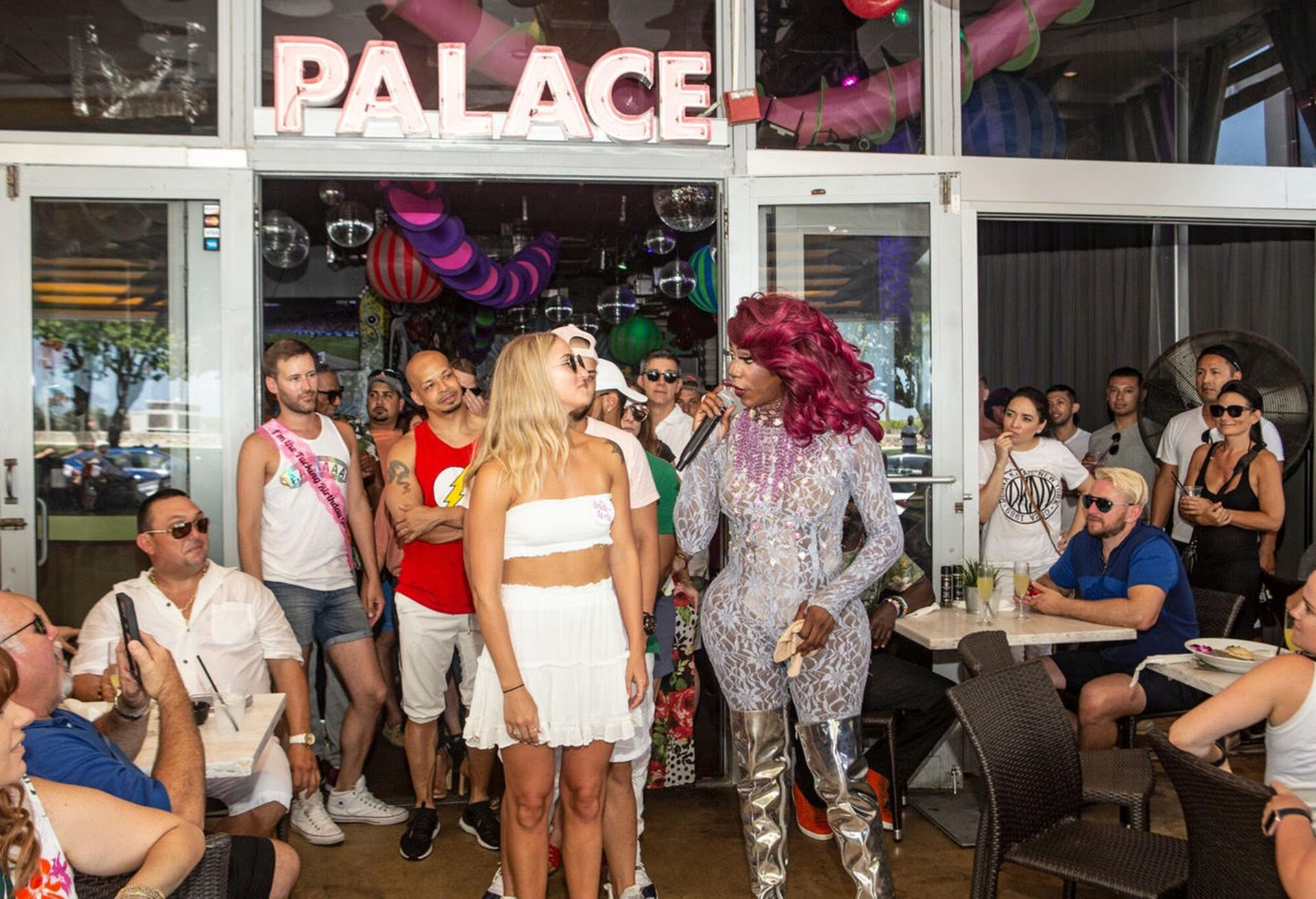
Palace (Miami)
This Miami icon opened in 1988, right around the time that South Beach was emerging as an international LGBTQ destination and immediately began drawing regulars such as Gianni Versace, who would arrive with friends such as Elton John and Madonna. Since the days of Versace, Palace has expanded into a multi-level space that includes a rooftop bar, complete with a pool and ocean views. You can stop by any night of the week for fish tacos, burgers, or a steak, but the real draw here is the famed Sunday drag brunch. To call it a drag show would be an understatement—Sundays here are a streetside drag party, where the city’s top performers spill onto the sidewalk, stopping traffic and passersby as they dance their way in between tables, pulling diners out of their chairs.
The Tavern on Camac (Philly)
Philadelphia’s longest-running gay bar—it has operated continuously since the 1920’s—features three levels, giving visitors a full evening’s worth of entertainment in a single venue. Start downstairs with a reservation at the tavern for cocktails and classics such as deviled eggs and seared scallops before heading up to the piano bar for a communal sing-along. In the coming months, The Tavern will reopen Ascend, the upstairs club that completes the nightlife trifecta with high-energy dance parties that often go into the early morning hours.
Jeffery Pub (Chicago)
Jeffery Pub has been a gay destination on the South Shore since the 1960s, when a neighboring gay bar closed and the patrons migrated across the street. Aside from being one of the city’s longest standing gay institutions, it’s also Chicago’s only Black-owned LGBTQ spot and one of few LGBTQ bars located outside of Boystown, Chicago’s historic queer neighborhood. On any given night, one might find several generations of the community inside, chatting with staffers—some of whom have been working there for decades—and dancing to a rotating cast of some of the city’s best DJs.
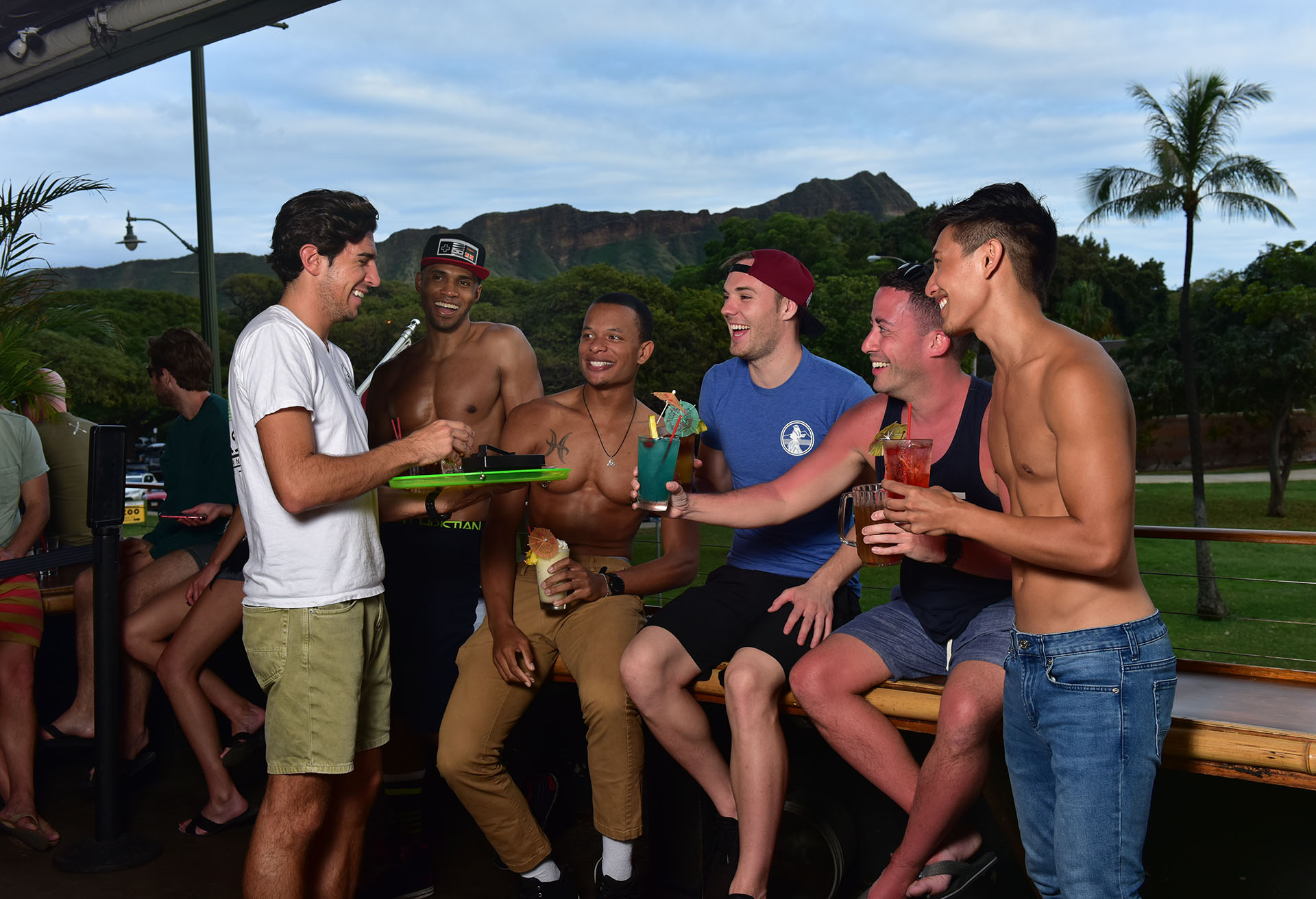
Hula’s Bar & Lei Stand (Honolulu)
For one of the most scenic places to celebrate Pride, head to Oahu and grab a bar stool at Hula’s, where you can soak in views of Waikiki Beach and Diamond Head at the island’s oldest LGBTQ bar. Hula’s has grown a lot since it opened in 1974 at its original location on Kuhio Avenue, where it was nothing more than a room with two turntables, a few speakers, and a full bar. The restaurant now resides in the Waikiki Grand Hotel, where on any given night you can find some of the island’s best live music paired with a pitcher of mai tais and nachos topped with Kalua pork and mango pineapple salsa.
Sue Ellen’s (Dallas)
According to The Lesbian Bar Project, there are fewer than 21 lesbian bars remaining in the United States. In Texas, Sue Ellen’s has been a gathering place for women in Dallas and the surrounding towns since 1989, anchored by charismatic owner Kathy Jack. Her presence, plus the lack of options for lesbians, have buoyed Sue Ellen’s popularity so much that the bar has expanded four times throughout its history. But no matter how big the space has gotten, its patrons continue to form a tight-knit and welcoming community, where you can grab a beer with friends, listen to blues bands, or catch a football game (this is Texas, after all!).
Cafe’ Lafitte in Exile (NOLA)
In true New Orleans fashion, Cafe’ Lafitte in Exile is dripping with history and may be home to a few ghosts. The bar has operated continuously since the 1930s, counting luminaries such as Tennessee Williams and Truman Capote among the many thousands in both its old location (the historic structure that now houses Lafitte’s Blacksmith Shop) and its current space on Bourbon Street. Start your Pride festivities here or make it your last stop—the bar is open 24/7, so you could technically do both.
Babes of Carytown (Richmond, VA)
With three bars, a beach volleyball court, dancing, karaoke, and bar games, there’s something for everyone at Babes of Carytown—which explains the bar’s enduring popularity since it opened in 1979. And Richmond’s oldest LGBTQ establishment doesn’t just appeal to locals; it also appeared on a 2017 list of Best Dive Bars nationwide.
